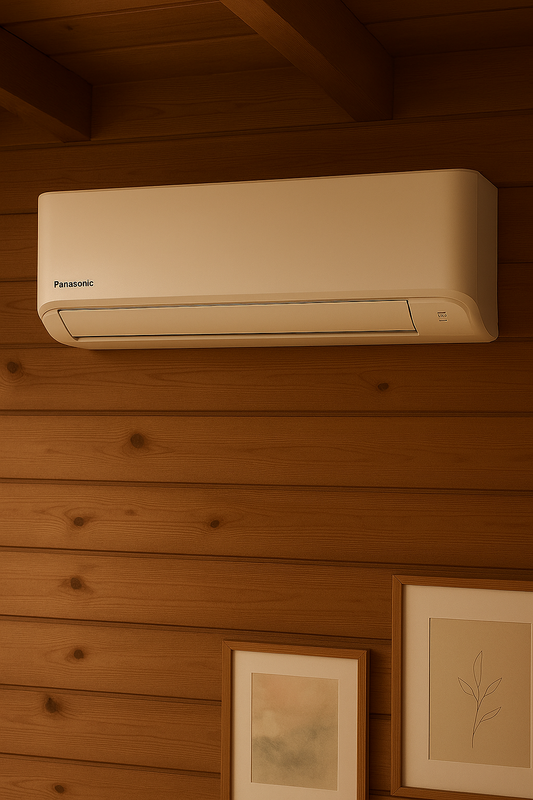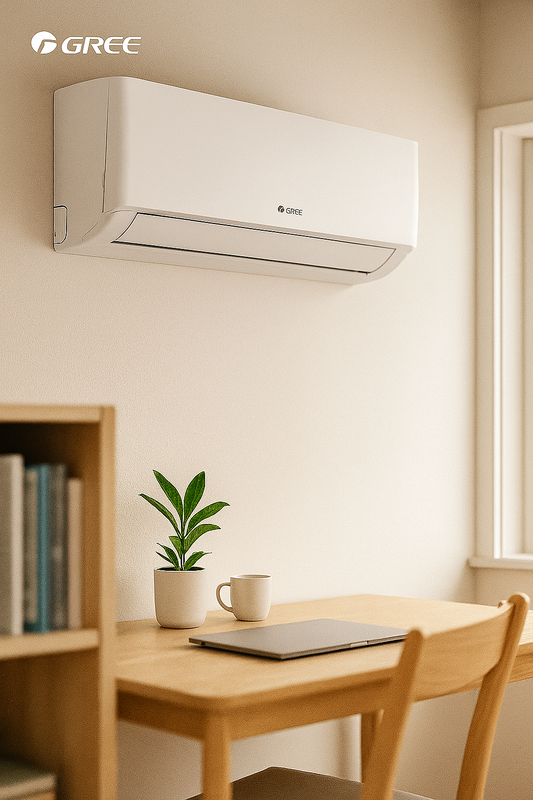CTC Luft Vatten Värmepump Installation
Inledning
En CTC luft vatten värmepump är en effektiv och miljövänlig lösning för att producera värme och varmvatten till både bostäder och kommersiella fastigheter. Denna artikel kommer att ge en översikt av installationen av en CTC luft vatten värmepump, dess fördelar, användningsområden, relaterade tekniker samt vanliga frågor och svar.
Definition och Bakgrund
En CTC luft vatten värmepump använder utomhusluft som energikälla för att producera värme och varmvatten. Genom att utnyttja den omgivande luftens värmeenergi och överföra den till värmesystemet, kan värmepumpen effektivt värma upp en bostad eller fastighet. CTC är en välkänd tillverkare av värmepumpar och har utvecklat avancerade system för att maximera effektiviteten och hållbarheten.
Fördelar och Användningsområden
CTC luft vatten värmepumpar erbjuder flera fördelar, inklusive hög energieffektivitet, minskade energikostnader och minskad miljöpåverkan jämfört med konventionella värmesystem. Dessa värmepumpar kan användas i både nya och befintliga byggnader och passar för såväl småhus som stora fastigheter. Installationen av en CTC luft vatten värmepump kan bidra till att minska en fastighets koldioxidutsläpp och öka dess hållbarhet.
Relaterade Tekniker, Begrepp eller Variationer
Det finns flera relaterade tekniker och begrepp inom området för luft vatten värmepumpar, inklusive mark vatten värmepumpar och luft luft värmepumpar. Mark vatten värmepumpar utnyttjar energin från marken istället för luften, medan luft luft värmepumpar endast producerar uppvärmning och inte varmvatten. Det är viktigt att skilja dessa tekniker åt och välja den som passar bäst för den specifika fastigheten och dess behov.
Vanliga Frågor (FAQ)
-
Hur lång tid tar det att installera en CTC luft vatten värmepump?
Installationsprocessen kan variera beroende på fastighetens storlek och befintliga värmesystem, men vanligtvis tar det några dagar att genomföra en heltäckande installation.
-
Vilken typ av underhåll kräver en CTC luft vatten värmepump?
Regelbunden rengöring av filter och kontroll av vätskenivåer är viktiga delar av underhållet för att säkerställa optimal prestanda.
-
Vad är den förväntade livslängden för en CTC luft vatten värmepump?
Med regelbundet underhåll kan en CTC luft vatten värmepump förväntas hålla i över 15 år, beroende på användningsområden och driftsförhållanden.
Sammanfattning
Installationen av en CTC luft vatten värmepump är en kostnadseffektiv och hållbar lösning för att producera värme och varmvatten. Genom att utnyttja den omgivande luftens energi kan värmepumpen bidra till att minska energikostnader och miljöpåverkan. Det är viktigt att förstå fördelarna, användningsområdena och de relaterade teknikerna för att kunna fatta välgrundade beslut gällande installation och drift av en CTC luft vatten värmepump.
Installation Process
The installation process of a CTC air to water heat pump involves several steps to ensure optimal performance and efficiency. It begins with a thorough assessment of the property to determine the most suitable location for the outdoor unit and the integration with the existing heating system. The indoor components, such as the heat exchanger and hot water tank, are then installed according to the manufacturer's specifications. Proper insulation and sealing of the ductwork and piping are essential to minimize heat loss and maximize energy efficiency.
Energy Efficiency Standards
CTC air to water heat pumps adhere to rigorous energy efficiency standards to provide sustainable heating solutions. These standards ensure that the heat pump operates with minimal energy consumption while delivering consistent performance. By meeting and often exceeding these standards, CTC heat pumps contribute to reducing the overall carbon footprint of a property.
Case Study: Residential Application
In a residential setting, the installation of a CTC air to water heat pump resulted in a significant reduction in heating costs for a family home. By harnessing the ambient air as a renewable energy source, the heat pump provided reliable heating and hot water while substantially lowering the household's energy expenditure. This case study illustrates the practical benefits of integrating a CTC heat pump into residential properties.
Remote Monitoring and Control
CTC offers advanced remote monitoring and control features for their air to water heat pumps, allowing users to manage and optimize the system's performance. Through a user-friendly interface, property owners can monitor energy consumption, adjust heating schedules, and receive real-time notifications for maintenance requirements. This level of control enhances the overall convenience and efficiency of operating a CTC heat pump.
Enhanced Energy Efficiency
One notable aspect of CTC air to water heat pumps is their enhanced energy efficiency, which is achieved through advanced technology and design. The system's ability to extract and utilize heat from the outdoor air with minimal energy input contributes to substantial energy savings over time. This elevated efficiency not only reduces operational costs but also aligns with sustainable energy practices.
Industry Innovations and Advancements
CTC is at the forefront of industry innovations and advancements in air to water heat pump technology. Through ongoing research and development, the company continues to refine and enhance the performance and capabilities of their heat pump systems. These innovations may encompass improved compressor technology, enhanced heat exchanger designs, and intelligent control systems, all aimed at delivering optimal heating efficiency.
Commercial Applications and Benefits
CTC air to water heat pumps offer substantial benefits in commercial applications, catering to the heating and hot water needs of various businesses and organizations. From office complexes to industrial facilities, the installation of CTC heat pumps presents an opportunity for significant energy cost reductions and environmental impact mitigation. The versatility and scalability of these systems make them well-suited for diverse commercial environments.
Integration with Renewable Energy Sources
An increasingly prevalent trend involves the integration of CTC air to water heat pumps with other renewable energy sources, such as solar panels or wind turbines. This combined approach allows for a comprehensive renewable energy solution, leveraging multiple sources to power the heat pump and further reduce reliance on traditional energy grids. The synergistic effect of these integrated systems contributes to a more sustainable energy infrastructure.
Environmental Impact Assessment
Prior to installation, an environmental impact assessment is recommended to evaluate the potential benefits and implications of integrating a CTC air to water heat pump. This assessment considers factors such as carbon emissions reduction, energy conservation, and the long-term environmental sustainability of the property. By conducting this assessment, property owners can gain valuable insights into the ecological footprint of the heat pump system.
Smart Thermostat Integration
Integrating a smart thermostat with a CTC air to water heat pump enhances the system's overall efficiency and adaptability. Smart thermostats enable precise temperature control, adaptive scheduling, and remote access through mobile devices, empowering users to optimize energy usage and comfort. This integration represents a forward-looking approach to managing heating systems effectively.
Seasonal Performance Considerations
Understanding the seasonal performance variations of a CTC air to water heat pump is crucial for maximizing its effectiveness throughout the year. By assessing the system's performance under different outdoor temperature ranges and weather conditions, property owners can fine-tune their heating strategies and ensure consistent comfort and energy savings across seasons.
Additional Maintenance Recommendations
In addition to regular filter cleaning and fluid level checks, it is advisable to schedule professional maintenance for a CTC air to water heat pump at least once a year. Professional servicing can address any potential issues, optimize system performance, and prolong the lifespan of the heat pump.
Optimizing Hot Water Distribution
An important aspect of CTC air to water heat pump operation involves optimizing the distribution of hot water throughout the property. Properly designed and insulated piping systems, in conjunction with efficient hot water circulation pumps, contribute to minimizing heat loss and ensuring consistent hot water availability.
Advanced Heat Pump Controls
CTC offers advanced control options for their air to water heat pumps, allowing for precise temperature regulation, remote monitoring, and integration with smart home systems. These advanced controls enable users to tailor the heating and hot water settings to their specific preferences and usage patterns.
Financial Incentives and Rebates
Many regions offer financial incentives and rebates for the installation of energy-efficient heating systems, including air to water heat pumps. Property owners are encouraged to explore available programs to offset the initial investment and further maximize the cost-effectiveness of integrating a CTC heat pump.
Water Source and Groundwater Considerations
In some cases, CTC offers specialized solutions for utilizing water sources, such as lakes or groundwater, as a heat exchange medium for their heat pumps. Understanding the feasibility and regulatory aspects of utilizing water sources can provide additional options for sustainable heat pump installations.
Hybrid Heating System Integration
For properties with specific heating requirements, the integration of a CTC air to water heat pump with a complementary heating source, such as a biomass boiler or a traditional furnace, can create a hybrid heating system. This approach provides flexibility and redundancy in meeting heating demands in varying conditions.
Monitoring Energy Performance Metrics
Property owners can benefit from monitoring energy performance metrics, such as COP (Coefficient of Performance) and EER (Energy Efficiency Ratio), to assess the ongoing efficiency of a CTC air to water heat pump. These metrics offer insights into the heat pump's energy utilization and effectiveness in different operating scenarios.
Adapting to Building Regulations
Staying informed about building regulations and energy efficiency standards is crucial when planning the installation of a CTC air to water heat pump. Compliance with relevant regulations ensures the lawful and sustainable integration of the heat pump within the property's infrastructure.
Emergency Preparedness and Backup Systems
Considering emergency preparedness and incorporating backup heating systems, such as electric resistance heaters or thermal storage solutions, adds an additional layer of resilience to a property equipped with a CTC air to water heat pump. These measures contribute to uninterrupted heating capabilities in unforeseen circumstances.
Community Engagement and Awareness
Engaging with local communities and sharing knowledge about the benefits of CTC air to water heat pumps can foster broader awareness and adoption of sustainable heating practices. Community-based initiatives and information sessions can contribute to collective efforts in promoting energy-efficient solutions.



